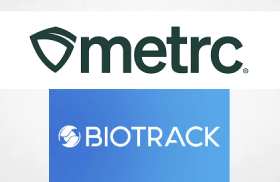Here’s the full release.
It covers about everything you can think of. It looks like Massachusetts is getting serious. Maybe they’ll be setting the tone for the East Coast.
- Medical Use of Marijuana Program
- Equity Programming
- Delivery
- Ownership & Control
- Product Database
- Advertising and Branding
- Testing
WORCESTER—The Cannabis Control Commission (Commission) today approved new medical- and adult-use regulations and phased out 935 CMR 502, Colocated Adult-Use and Medical-Use Marijuana Operations, after bringing sufficient parity to the medical- and adult-use regulations.
“I’m excited that the revised medical- and adult-use regulatory revisions poise the Commission to make significant progress in our mission and statutory mandates on equity, patient access, and public health and safety,” Chairman Steven J. Hoffman said. “While we’ve made tremendous headway over the past three years, we now turn to critical work to implement new provisions, including; the increased caregiver/patient ratio, development of guidance documents, rollout of the Delivery Operator application, and a host of provisions establishing a more equitable and safe industry.”
In the coming weeks, the final regulations will be filed with the Secretary of State’s Regulation Division for promulgation and published on the Commission’s website.
Approved policies include:
Medical Use of Marijuana Program
- Optimizing Patient access and preserving public safety by:
- Allowing Caregivers to care for up to five Patients with a Canopy not in excess of 500 square feet;
- Clarifying that Caregivers may seek a waiver to care for more than five Patients but cannot exceed the 500-square-foot limitation;
- Preventing perceived risk of diversion by requiring Caregivers to create a log-of-growing and make that log available to the Commission upon request;
- Broadening the types of physicians who can serve as the second physician making the recommendation for pediatric patients;
- Requiring Certifying Health Care Providers (Providers) to have a plan to provide discounts to low-income Patients;
- Allowing Patients with certain hardships to renew every two years instead of one year;
- Permitting Patients to cultivate up to 12 flowering plants without hardship cultivation, and if more are needed, requiring hardship cultivation;
- Allowing certain out-of-state Patients to be certified and registered as a Patient in Massachusetts; and
- Restricting Caregivers from participating in paid advertising.
Equity Programming
- Promoting a more inclusive and diverse industry by:
- Waiving all Delivery application and license fees for Certified Economic Empowerment Priority Applicants (EEA) and Social Equity Program (SEP) participants in their first year of licensure under the exclusivity period;
- Reducing annual license fees by 50%, or to $2,500, for EEAs and SEP participants upon renewal and all subsequent years for applicants;
- Expanding SEP eligibility to certain categories of individuals and EEAs;
- Requiring majority ownership by SEP participants in order to access license-related benefits, and potentially expanding these program benefits to microbusinesses and minority-owned, veteran-owned, and women-owned businesses; and
- Clarifying that individuals who are EEAs, whether on their own or as part of a business entity, can apply as part of a new entity with EEA status so long as it continues to meet three or more of the six criteria, at least one of which shall be a majority-equity-ownership criterion.
Delivery
- Increasing adult-use access and evolving the Delivery license type by:
- Approving the Delivery Operator license type, which allows licensees to purchase wholesale Finished Marijuana Products with stringent requirements to warehouse;
- Clarifying the statutory allowance of up to three Retail licenses and the regulatory allowance of up to a combined total of two Marijuana Courier and/or Delivery Operator licenses;
- Extending the initial exclusivity period to three-years;
- Allowing Third-Party Technology Platform Providers to contract with an unlimited number of Delivery Licensees;
- Authorizing Delivery Operator Licensees to white label, or affix a product label that includes the branding (name and logo) of a specific Marijuana Establishment (ME) to a finished marijuana product that was previously produced and packaged by a licensed Product Manufacturer, Cultivator, Microbusiness, or Craft Marijuana Cooperative for sale to consumers;
- Allowing Delivery Licensees to sell marijuana accessories and ME-branded goods and non-edible items directly to consumers; and
- Automatically converting existing Pre-Certified “Delivery-Only” applicants to Delivery Courier Applicants.
Ownership & Control
- Tightening stringent ownership and control measures further by:
- Requiring EEAs to report to the Commission all changes of ownership and control and upon renewal and certifying to the Commission that the requisite ownership and control has been maintained by the requisite class of people identified on the EEA’s certification;
- Preventing monopolies with the addition of safeguards between Third-Party Technology Platforms and Delivery Licensees by explicitly prohibiting:
- monopolization or attempts at monopolization;
- inducements;
- direct or indirect investments from Third-Party Technology Platforms; and
- restricting determinations of product and licensee placement on an app to objective, customer-oriented criteria.
- Updating the definition of Persons or Entities with Direct Control by encompassing the equivalent of a Director in a business entity such as a Limited Liability Company, which has Managers in lieu of a Board of Directors, and setting a specific dollar amount with respect to what the Commission considers “significant contracts;” and
- Confirming that EEAs hold majority ownership (51% or more) over the license to maintain priority status.
Product Database
- Ensuring that the public is knowledgeable of the hallmarks of legally sourced products, preventing underage access, and lowering the risk of purchasing illicit products by adopting a requirement that Marijuana Establishments, including Delivery Operators, and MTCs comply with the Product Database requirement, just as adult-use licensees must.
Advertising and Branding
- Modifying advertising and branding regulations by:
- Allowing of branding sponsorships at certain events, with continued prohibitions on activities that target underage participants or entrants; and
- Approving targeted advertising through mechanisms such as geofencing, provided they retain documentation of audience composition data related to these marketing activities.
Testing
- Increasing testing accountability for licencees by:
- Allowing marijuana products that fail initial contaminant screens to be:
- Reanalyzed;
- Remediated and retested by at least the original Independent Testing Laboratory, and a different Independent Testing Laboratory; or
- Licensees may attempt remediation of a batch that has failed a second test prior to disposal or destruction.
- Adding new pesticides to the list of pesticides currently required of Independent Testing Laboratory protocols; and
- Requiring continued testing for vitamin E acetate and a secondary screen for heavy metals from finished vapes.
- Allowing marijuana products that fail initial contaminant screens to be:
Video recordings of the Commission’s previous policy discussions and public hearings regarding the new regulations are available on Facebook and YouTube.
For more information, contact the Commission at 774-415-0200, email Commission@CCCMass.com, or follow the agency on Facebook and Twitter.















